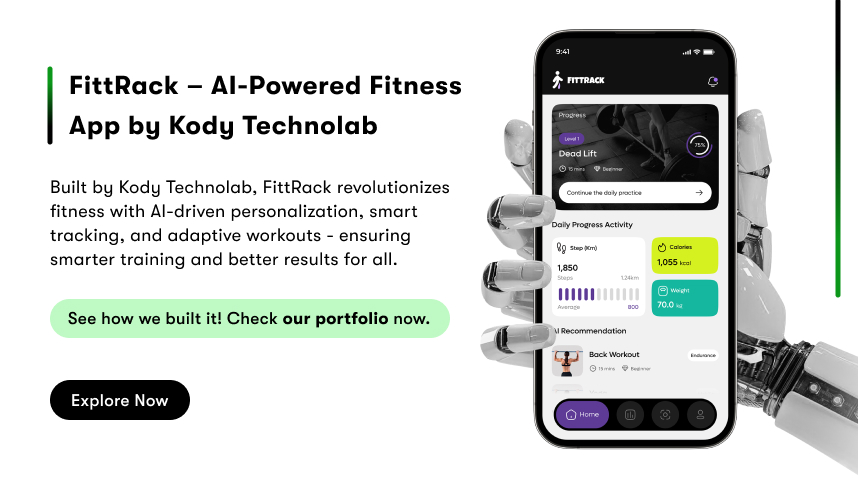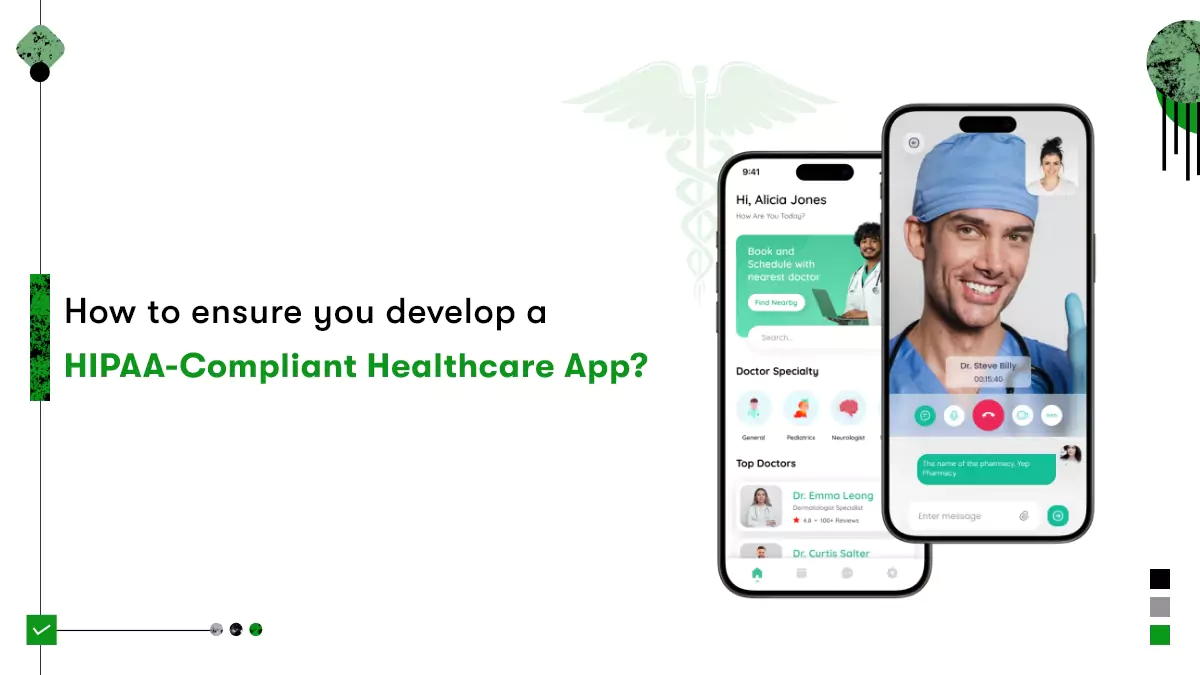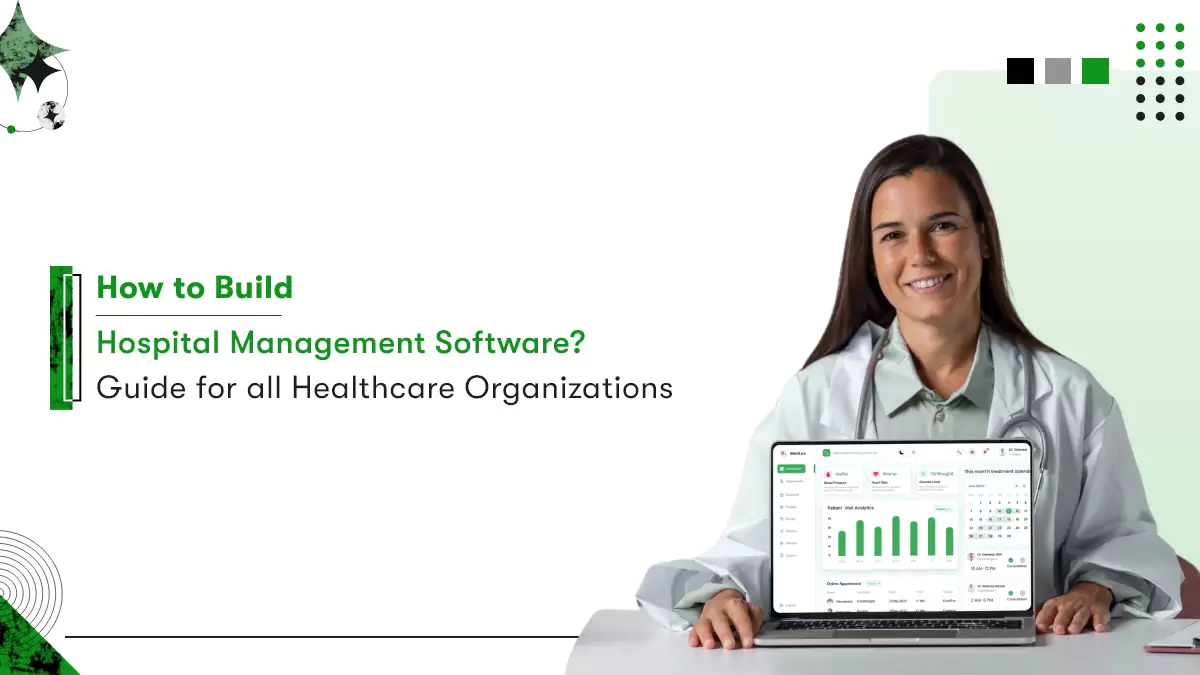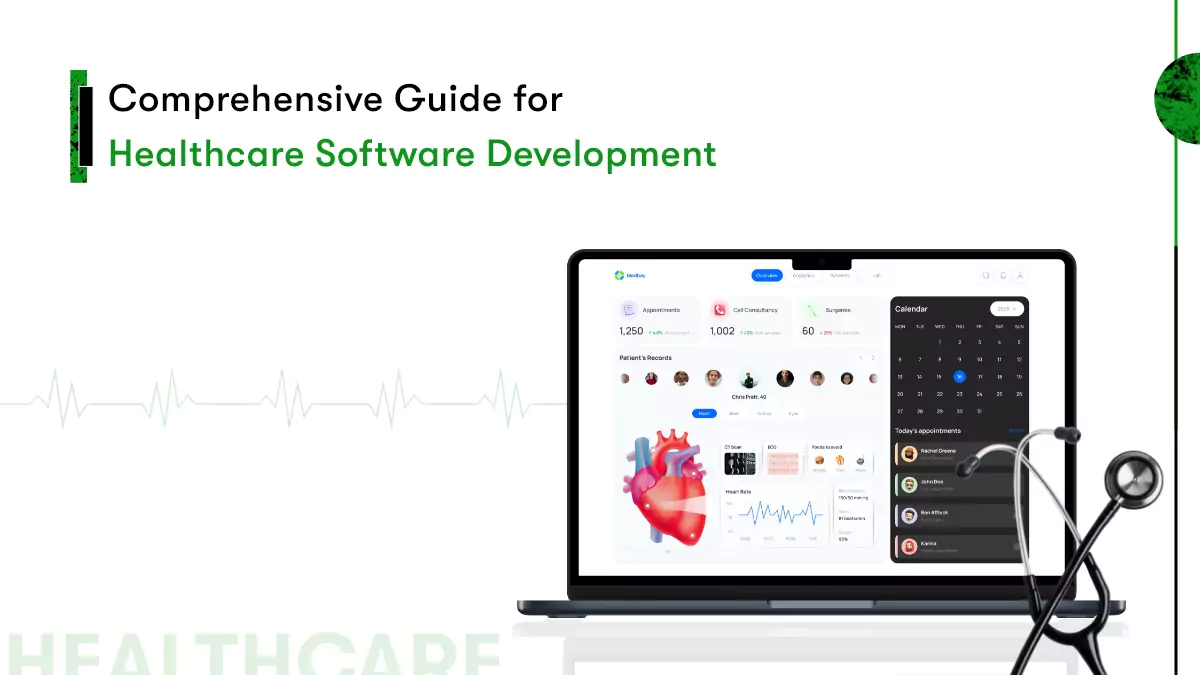The Healthcare technology revolution is where innovation races at the speed of light (or at least as fast as your latest smartphone update). If we talk about numbers that don’t lie,
The global mHealth apps market is expected to reach $269.31 billion by 2032 from $80.61 billion in 2022. – Source
That’s a lot of zeros and a clear signal that the health app market is not just booming. The industry is exploding like a supernova in the digital universe. But here’s the catch – with great power (and market potential) comes great responsibility (and regulation). And the challenging checkpoint in digital transformation in healthcare is – HIPAA compliance.
Balancing the scales of innovation with the weights of HIPAA regulations can feel like walking on a tightrope, blindfolded without a safety net. So, what’s the solution?
Well, that’s what we’re here for. So, stay tuned whether you want to navigate the complexity of HIPAA to gain trust, avoid legal consequences, or safeguard patient data. From understanding the demanding HIPAA regulation to crafting HIPAA-compliant healthcare apps, this guide is packed with valuable insights driven by our experience.
What is a HIPPA regulation?
HIPAA, the Health Insurance Portability and Accountability Act, is a pivotal federal law governing the use and safeguarding of Protected Health Information (PHI). The act sets the standards for handling PHI, ensuring that sensitive patient data is not just confidential but also secure from unauthorized access.
Furthermore, HIPAA compliance requires healthcare providers, payers, and their business associates to implement rigorous privacy and security measures as a mandatory aspect of healthcare operations. Security measures range from technical safeguards like encryption to administrative protocols like staff training and physical security measures.
Simply put, HIPAA is the framework that guides the development and management of health information systems. It helps covered entities ensure that every piece of patient data–whether in transit or at rest– is handled with the highest level of security and confidentiality.

Covered Entities under HIPAA:
Healthcare Providers: Any provider transmitting health information electronically in specific transactions (like claims or referrals).
Health Plans: This includes insurers (health, dental, vision, prescription drugs), HMOs, Medicare/Medicaid, and employer-sponsored health plans. Exception: Small group health plans managed solely by the employer.
Healthcare Clearinghouses: Entities converting nonstandard health information to standard formats, typically as business associates.
Business Associates: Organizations or individuals performing PHI functions for a covered entity, like billing or data analysis.
What Data is Subject to HIPAA Regulations?
HIPAA-compliant healthcare app development’s role is to protect personal health details from misuse while allowing necessary healthcare operations. Hence, under HIPAA, the spotlight is on Protected Health Information (PHI)- any data that can identify an individual and relate to their health status, healthcare services received, or payment for healthcare services. Here’s a breakdown:
| Category | Examples of PHI |
| Identification Data | Name, Address, Birthdates, Social Security Numbers |
| Contact Information | Phone Numbers, Email Addresses |
| Health Status | Medical Records, Test Results, Diagnoses |
| Healthcare Services | Treatment Plans, Prescriptions, Doctor’s Notes |
| Payment Information | Billing Information, Insurance Details |
| Unique Identifiers | Medical Record Numbers, Account Numbers |
| Demographic Information | Age, Gender, Ethnicity |
| Employment Information | Employer, Employment Records (if related to health) |
| Educational Information | If it relates to health conditions or treatment |
| Other Identifiers | Any other data that can be used to identify an individual in a healthcare context |
What does it mean to Develop a HIPAA-Compliant Mobile App?
Developing a HIPAA-compliant mobile app means prioritizing privacy and security. It’s about safeguarding patient data like a digital fortress. Every feature and line of code must align with HIPAA standards, including encrypting data at rest and in transit.
Your app must ensure only authorized access to health information. Think of it as a gatekeeper, allowing only the right people in. Compliance also means regular audits and updates, keeping the app in line with evolving regulations.
In essence, a HIPAA-compliant platform is a commitment. A commitment to protect patient privacy and maintain data integrity. It’s a blend of smart technology and ethical responsibility, all geared towards secure healthcare solutions.
HIPAA-Compliant App Development Examples
Developing HIPAA-compliant apps involves a blend of information technology and strict adherence to privacy laws. Let’s look into healthcare apps that showcase the critical balance of functionality and security, a hallmark of HIPAA-compliant app development.

Patient Portal Apps: Think of apps like FollowMyHealth or MyChart. They provide secure access to personal health records, ensuring data protection at every step.
Medical Device Apps: These apps, designed to work with healthcare devices, handle sensitive data with utmost care. They encrypt data and restrict access, aligning with HIPAA standards.
Telehealth Apps: Platforms like Amwell offer remote healthcare services. They maintain patient confidentiality while providing essential health services.
Health Monitoring Apps: Apps that track health metrics also fall under this category. They secure patient data from wearable devices, ensuring it’s not misused.
Why is HIPAA-Compliant App Development so important?
HIPAA compliance is a cornerstone in healthcare software development, ensuring that healthcare providers and patients benefit from secure and trustworthy digital health solutions.
For Healthcare Facilities:
- Legal Compliance: Avoids legal penalties and fines for non-compliance.
- Data Security: Ensures robust protection against data breaches.
- Patient Trust: Builds and maintains trust in the facility’s services.
- Operational Integrity: Streamlines operations with secure data handling.
- Reputation Management: Protects the facility’s reputation in the healthcare industry.
For Patients:
- Privacy Assurance: Guarantees the confidentiality of personal health information.
- Control Over Data: Empowers patients with control over their health data.
- Trust in Care: Enhances trust in healthcare providers and services.
- Access to Care: Facilitates secure access to telehealth and remote monitoring.
- Informed Decisions: Supports patients in making informed health decisions with secure data access.

What if you fail or violate HIPAA Compliance?
HIPAA compliance is critical to maintaining the integrity and trustworthiness of your digital healthcare services. Failing to comply with HIPAA can lead to a range of severe consequences. For example,
- Financial Penalties: Non-compliance can result in substantial fines. For example, Anthem, Inc. faced a $16 million settlement for a significant data breach, underscoring the financial risks involved.
- Legal Repercussions: Beyond fines, severe breaches can escalate to criminal charges, potentially leading to jail time. This legal dimension adds a layer of seriousness to HIPAA compliance.
- Reputational Damage: A HIPAA violation can tarnish the reputation of healthcare facilities. Cases like Memorial Healthcare System’s $5.5 million settlement for internal breaches highlight how trust and reputation can be compromised.
- Operational Disruptions: Investigations and legal proceedings following a violation can disrupt healthcare operations, affecting service delivery and patient care.
- Impact on Patients: Violations can lead to privacy breaches, increasing the risk of identity theft and healthcare fraud. Such violations not only affect the individual’s privacy but also their trust in the healthcare system.
How to make a HIPAA-Compliant App?
Creating a HIPAA-compliant app is a meticulous process that demands attention to detail and a deep understanding of healthcare regulations. Here are steps to follow to ensure HIPAA-compliant healthcare app development.

Come Up with a Solid Idea
Start with a clear, innovative concept. Whether it’s an elder healthcare app solution or an AI skincare app, the idea should address specific healthcare needs. Consider factors like user experience, problem-solving capabilities, and market demand. A solid idea is the foundation of a successful app.
Work with an Experienced Team
Collaborate with a team skilled in healthcare IT consulting and HIPAA-compliant app development. Experienced developers understand the nuances of healthcare regulations and can effectively integrate them into your app. Their expertise is crucial in navigating the complex landscape of healthcare technology.
Check if Your App Idea Needs to be HIPAA-Compliant
Determine if your app handles Protected Health Information (PHI). Not all health-related apps require HIPAA compliance. For instance, a general wellness app might not need it, but an app handling patient data or connecting with healthcare providers will.
Create an MVP (Minimum Viable Product)
Develop an MVP to test your app idea in real-world scenarios. This version should include essential features that demonstrate the app’s value and compliance with HIPAA. Feedback from this phase is vital for refining and improving the app.
Optimize and Launch the App
After testing the MVP, optimize the app based on user feedback and compliance requirements. Ensure all HIPAA guidelines are rigorously followed. Once optimized, launch the app focusing on continuous improvement and regular updates to maintain compliance and relevance in the market.

How much does HIPAA-Compliant Mobile App Development Cost?
Investing in HIPAA-compliant app development is a step toward building a trustworthy and secure healthcare application. While HIPAA-compliant app development may vary based on the project’s complexity, features, and the development team’s expertise, here’s what the estimated cost breakdown looks like.
Initial Stages: This stage includes ideation and planning. Generally, there are no significant costs here, but it’s crucial for setting a clear direction.
UI/UX Design: Designing a user-friendly interface is key. This stage might cost around $6,300, taking up to 5 weeks. It’s where the app starts taking shape, focusing on user experience while ensuring compliance.
Software Development: The core phase where the app is built. This could cost about $38,700 over 10 weeks. It involves developing secure and efficient functionalities that comply with HIPAA standards.
Quality Assurance (QA) Testing: Testing is vital to ensure the app is bug-free and compliant. This stage might cost around $6,000, often running parallel to development.
Project Management: Overseeing the project incurs costs, too, approximately $4,250. It’s crucial for coordinating different aspects of development and ensuring adherence to HIPAA.
Overall Estimate: On average, developing a HIPAA-compliant app could cost around $55,250 and take about 5 months.
How can Kody Technolab Ltd. help you start a HIPAA-compliant healthcare app startup?
HIPAA serves as a critical framework ensuring the confidentiality, integrity, and security of patient health information. Digital health data is increasingly prevalent today, and HIPAA compliance is key to protecting sensitive patient information from unauthorized access and breaches. Adhering to HIPAA standards not only fosters trust between patients and healthcare providers but also upholds legal and ethical standards.
Developing a HIPAA-compliant healthcare app can be daunting, but with Kody Technolab Ltd., you’re in capable hands!
From leveraging the latest Healthcare Technology trends like AI and predictive analytics in healthcare to ensuring every aspect of your app meets stringent HIPAA standards, our team is equipped to transform your vision into a compliant, functional, and innovative healthcare app. We focus on delivering quality and value, ensuring that your app not only meets regulatory requirements but also excels in user experience and technological prowess.












 Contact Information
Contact Information